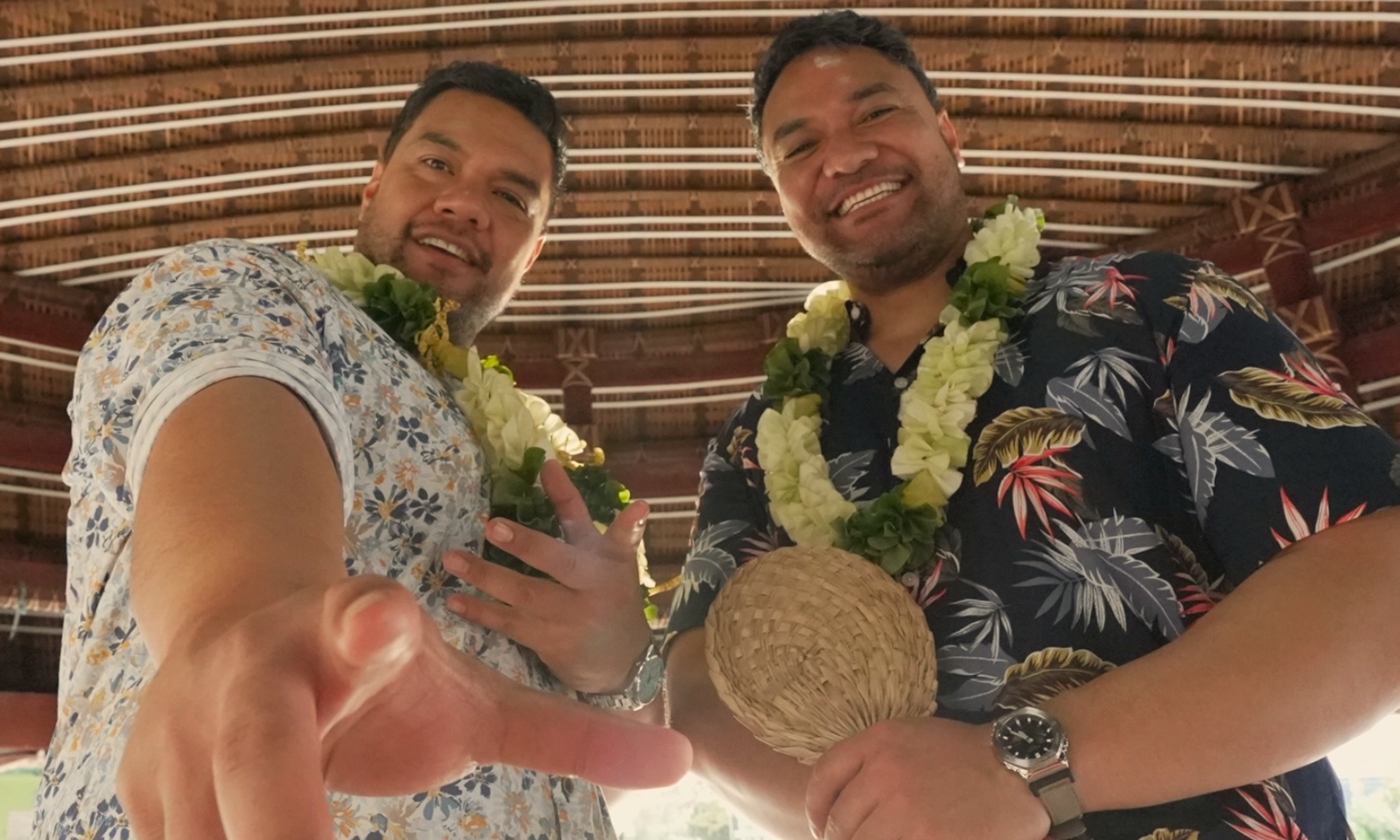

Gang members converged on Manukau for a conference about addressing past trauma and healing.
Photo/PMN News/Khalia Strong
PMN's Summer Series: Gangs unite to address state care trauma and pursue healing
A historic conference in Manukau hosted rival gangs seated side by side in a bid to find healing and a way forward.


The Sāmoan Tenor named Pati who turned disadvantage into an operatic destiny

Naval officers face charges over sinking of HMNZS Manawanui

‘One of our most trusted leaders’: Tributes flow for a beloved rangatira

Argentina eyes Pacific Islands Forum dialogue partnership as NZ says nations must decide

The Sāmoan Tenor named Pati who turned disadvantage into an operatic destiny

Naval officers face charges over sinking of HMNZS Manawanui

‘One of our most trusted leaders’: Tributes flow for a beloved rangatira
Welcome to PMN's Summer Series, where we republish some of our best and most popular stories from the last 12 months - in largely their original form.
“I’d just like to welcome all the other gangs here.”
A patched Mongrel Mob member speaks from the podium, arms outstretched as he acknowledges rival chapters in the room and their leaders.
Seated around white conference tables, around 200 members of Black Power, Mongrel Mob, King Cobras, the Filthy Few, the Kuki Squad and Tribal Huk nod in response.
They’re at the Manukau Event Centre in a historic multi-gang convention, united by their desire for healing.
“I’ve been out of jail for four years”, the member continues, “and I’m never going back.”
This is met with cheers and grunting barks from the crowd, who have travelled from across the North Island to attend.
It’s the first time multiple gangs have sat down to share their stories of abuse, and find a better pathway forward. The convention is organised by Hīkoi Nation, a neutral think-tank working to improve outcomes and prompt change in gang communities.
The Waitangi Tribunal has acknowledged the connection between state care and gangs, with estimates 80-90% of Mongrel Mob and Black Power members were once in state care, where many suffered extreme physical, sexual and emotional abuse.
“The effects of that bullshit that they did to us, we are living it today”, says King Cobra Paul ‘Bola’ Golding.
“We haven’t separated it, we’re living with it. We’re doing crimes with it. We’re beating other people up, we’re using violence, these are all the things the state taught us.
“They say ‘you should go and work for your money, be a contributing member of society’, well, that’s the society that put me into care.”
Golding has spent most of his life in institutions, after seeing his mum get beaten up he entered state care where he was 'passed around like a football' between homes. He later served two life parole sentences.
Waitresses silently top up carafes of water, juice and Coca Cola as King Cobra Matt ‘Loko’ Harris speaks.
“I am a third generation state ward, I want to make sure that’s not passed on to the fourth generation.”
Saimone Latu is up next, and apologises for being late as he was dropping his daughter off to daycare.
“I did 17 and half years in prison for murder, and I’ve learnt to have a new appreciation for life.”
Latu is launching an intervention programme for Tongan youth in Māngere, called Big Toko, and is hoping to use his past experience to deter others.
“Besides being a dad, I feel like that’s the one job in this whole world that I’m qualified to do, talking to young fellas that are heading down that pathway.”
A change in mindset
Commissioners have been invited to attend as part of the Royal Commission of Inquiry into Abuse in Care, hearing the stories of hundreds of children who were abused as wards of state.
Attendees were encouraged to register and submit their personal stories as part of the inquiry. Commission chair Coral Shaw says uncovering those scars takes courage.
“I want to acknowledge all of you who suffered abuse while you were supposedly being cared for. You know that abuse. You know what happened. I want to acknowledge all of you who were neglected, who were not loved. All of you who, because you were taken away, lost contact with your whanau, iwi, your hapu, your aiga.
“I want to acknowledge all of you who continue to live with the impacts of those dreadful experiences. The trauma, the anger, the physical scars, the spiritual and cultural isolation that came about because you were taken from your families.”
An emotional voice calls out from the seats, “You need to stop calling it care! It’s not.”
Shaw responds with two quiet words, “I agree”.
Polynesian Panther Tigilau Ness says there’s a growing desire for change, evidenced by a shift in how many gangs are operating.
“Those that have been marginalised are the children in the gangs who are growing up now.
“They were once children who were abused and the result is the only family they know is themselves, who take them in and care for them and say ‘we know, we understand, we’re whanau’.
“Even the marae back in the day didn’t accept patched members, because of that - the fear, the aggravation - but things are changing now. A lot of the gang members are older, and they have mokopuna. They don’t want that to carry on.”
The Royal Commission will deliver its final report in June.